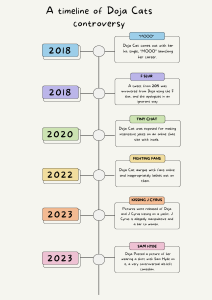The Future of Energy
May 3, 2016
It’s no secret that mankind uses a tremendous amount of fossil fuels. We are dependent on them to provide the energy needed for almost every aspect of civilized life. Unfortunately, between environmental issues, and more importantly, a shrinking supply, we cannot remain dependent forever.
Fossil fuels are geologic deposits derived from organisms millions of years ago, anaerobically decomposed into carbon rich distillates (“Fossil Fuels”). Besides becoming increasingly more scarce, the fuels release pollutants into the atmosphere. Chemicals released often cause “acid rain”; damaging to natural habitats, and harmful to people and infrastructure. Burning fossil fuels also releases greenhouse gasses. The term “greenhouse gas” refers to any gas that acts as an insulator in the earth’s atmosphere. These gases are responsible for climate change and have altered the earth’s climate numerous times before humans. The problem arises when mankind releases additional gas, changing the equilibrium. Even among scientists, there is not a consensus on the seriousness of this problem. Many argue that these extra emissions could result in abrupt and destructive climate change, but others are hesitant to believe the theory.
Alternatives to fossil fuels are existent and developing today. Biomass, though it sounds complicated, is the oldest form of fuel used by man. Biomass energy is from organic matter: everything from a wood stove to advanced biofuels. In the Canadian Encyclopedia, W.H. Cruickshank discusses the use of biomass in Canada’s forest industries. “Forest industries have been increasing their use of wood wastes that otherwise would be burned, buried or landfilled. Principal uses include firing boilers in pulp and paper mills for process heat and providing energy for lumber drying” (Cruickshank).
Solar energy gets a lot of media attention as an energy for the future, and proves promising. Richard Kadulski, a “green” architect, describes the uses of solar energy in his entry for the Canadian Encyclopedia. He says there are two types of solar energy. Active systems collect energy with devices like solar panels or focusing mirrors and lenses. Passive systems simply maximize the effects of the sun, usually with strategically placed windows or other features on buildings (Kadulski). A major benefit of solar power is the versatility to collect power almost anywhere.
Wind power, another viable option, is harnessed most often with huge turbines that rotate to power electric generators. Though not as versatile as solar energy systems, these turbines have the potential to be implemented heavily in areas with consistent wind.
While these alternatives (and numerous others) exist, they are not in place widely enough to become primary energy providers, and for good reason. Despite numerous benefits, none of these options are without flaw. Rich Blake discusses investor interest in green energy, and how the largest obstacles are usually standing in the way of the initial infrastructure. Though cost is slowly dropping with new technology, the initial investment for alternative energy plants is still very high. This limits widespread use because it is often cheaper to use fossil fuels (Blake).
While many say the need to change is for environmental reasons, the real driving force will be economics. As the supply of fossil fuel eventually diminishes, prices will continue to climb; forcing producers, investors and consumers alike to turn to alternatives. The best outcome requires gradual transition in order to avoid economic collapse. The government is likely to get involved in an attempt to force change before market pressures would do so, and the people should be wary of over-regulation. Too much government control over energy is tremendously powerful, and the government has a tendency to be extraordinarily inefficient. To provide the most efficient, competitive, and reliable power for the future, as much should be left to the free market as possible.
Mankind is always searching for ways to better itself, improve quality of life, and advance its capabilities. This becomes a problem when we reach the limits of our planet and still require the energy resources to power this betterment. Humans excel at adapting to adversity, and powering the world sustainably should be no exception. To make sure this happens with the fewest amount of problems, the optimization and implementation of sustainable energy should be prioritized in order to minimize the effect when mankind “grows out” of conventional fossil fuel energy.
Works Cited
Blake, Rich. “Alternative Energy Rebound Attracts Green Investors.” Institutional Investor. 01 Jul. 2009 eLibrary. Web. 12 Mar. 2016.
“Fossil Fuels.” Fossil Fuels. Environmental and Energy Study Institute. Web. 25 Apr. 2016.
Kadulski, Richard “Solar Energy.” The Canadian Encyclopedia. 2012. eLibrary. Web. 12 Mar. 2016.
- H. Cruickshank, J.E. Robert and C.R. Silversides “Biomass Energy.” Canadian Encyclopedia (2002). 2002. eLibrary. Web. 08 Mar. 2016.







